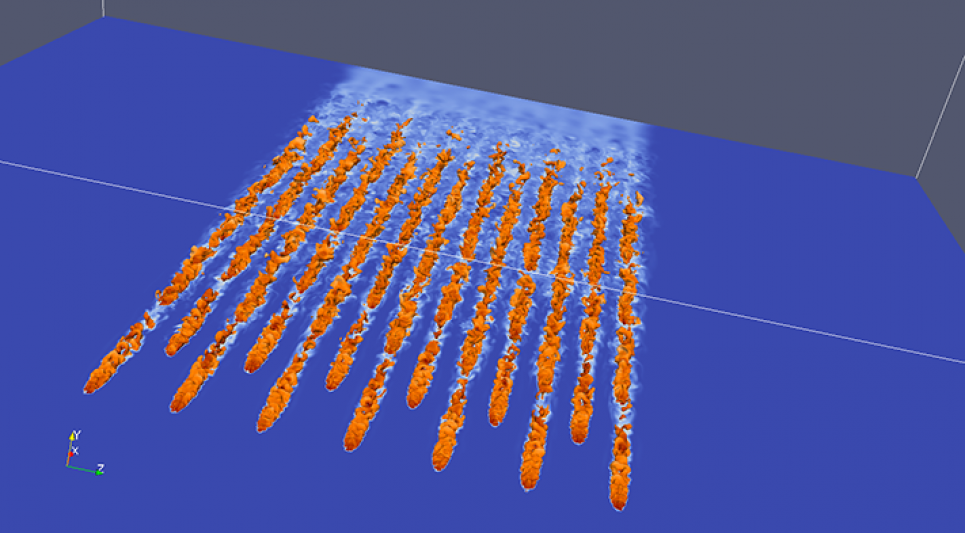
TENO Scheme: A New Paradigm for Hyperbolic Conservation Laws and Turbulent Flow
Abstract: For compressible flow simulations involving both turbulence and shockwaves, the competing requirements render it challenging to develop high-order numerical methods capable of capturing the discontinuities sharply and resolving the turbulence with high spectral resolution. In particular when deployed with the advanced large-eddy simulation (LES) approach, for which the governing equations are solved with coarse mesh, the solution is extraordinarily sensitive to the numerical dissipation resulting in large uncertainties for cross-code comparisons. Similar sensitivities have also been observed for a wide range of complex fluid predictions, e.g. turbulent reacting flows, two-phase flows, and transitional flows. In this talk, the family of high-order targeted essentially non-oscillatory (TENO) schemes is reviewed for general hyperbolic conservation laws with an emphasis on the high-speed turbulent flows. As a novel variant of popular weighted ENO (WENO) scheme, the TENO scheme retains the sharp shock-capturing capability of WENO and is suitable for resolving turbulence with controllable low numerical dissipation. The key success of TENO relies on a strong scale-separation procedure and the tailored novel ENO-like stencil selection strategy. In addition, the built-in candidate stencils with incremental width facilitates the construction of arbitrarily high-order (both odd- and even-order) schemes featuring superior robustness. Detailed comparisons between WENO and TENO schemes are discussed. Examples of the applications of TENO schemes to challenging compressible fluids with broadband length-scales are presented.
Bio: Dr. Lin Fu is a postdoctoral fellow of CTR (Center for Turbulence Research) working with Prof. Parviz Moin at Stanford University. Before he joined CTR, he obtained his Ph.D. degree with a grade of Summa Cum Laude (passed with the highest distinction) from Technical University of Munich. His on-going and future research involves fundamental study of flow physics including turbulence, transitional flows, multi-phase flows, and electrically conducting fluids. His research dedicates to an improved theoretical understanding of these complex fluids and contributes to optimizing the engineering quantities of interest, e.g. drag, heat transfer, mixing ratio, etc. In the perspective of scientific computation, he develops novel numerical methods including the high-order TENO (targeted ENO) schemes for hyperbolic conservation laws, the CVP (Centroidal Voronoi Particle) and SPH (Smoothed-particle hydrodynamics) based domain decomposition method for high-performance computing, SPH method for multiphase hydrodynamics and mesh generation method for scientific computing. Recently, he focuses on hypersonic flows by Direct Numerical Simulation (DNS) and Large Eddy Simulation (LES) approach. He is the reviewer of about 16 journals and has authored or co-authored more than 27 publications on prestigious journals.
Please use this link to attend the virtual seminar: